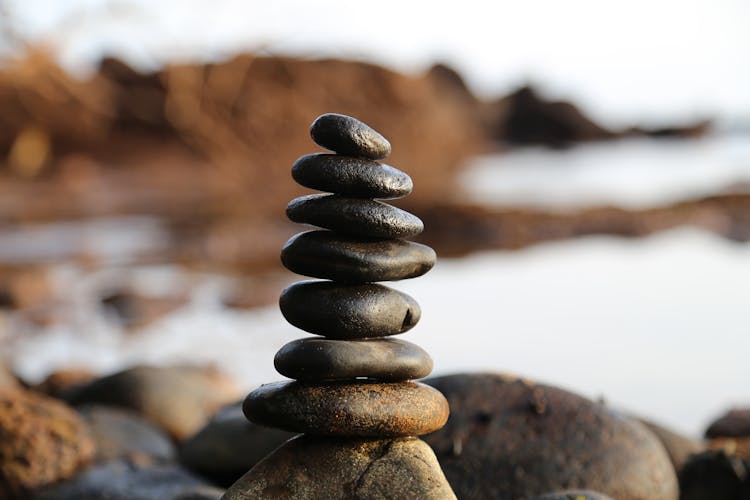Table of Contents
✨ TL;DR Summary: ✨
- 🌱 Mindfulness enhances emotional well-being and reduces anxiety.
- 🧘♀️ Incorporating mindful practices promotes better stress management.
- 💖 A consistent mindfulness routine can lead to improved mental clarity.
In today's fast-paced world, finding ways to cultivate inner peace and enhance wellness can feel like a daunting task. As individuals search for effective ways to manage stress and maintain balance, the practice of mindfulness has emerged as a powerful tool. Mindfulness is all about being present, fully aware, and engaged in the current moment. This practice not only helps to alleviate stress but also offers a multitude of wellness benefits that can significantly improve quality of life. The art of mindful living integrates awareness into daily routines, fostering resilience against hectic lifestyles.
One of the key components of mindfulness is its impact on stress reduction. According to numerous studies, regular mindfulness practice can lead to decreased levels of the stress hormone cortisol. By engaging in mindfulness exercises or simple breathing techniques, individuals cultivate an inner calm that permeates their daily lives. This newfound serenity allows them to react to challenges with a clearer mind and a more composed demeanor. Stress can be a debilitating force, but by practicing mindfulness regularly, it is possible to break free from its grip and foster a sense of well-being.
Practicing mindfulness can be as simple as taking a moment to pause and breathe, allowing yourself to truly observe your thoughts and feelings without judgement. Integrating these mindfulness practices into a daily routine has the potential to transform ordinary moments into opportunities for peace and clarity. Whether it’s during a morning cup of coffee or while walking through a park, being present provides a break from the chaotic demands of life.
The Healing Power of Mindfulness: Transform Your Health
Moreover, the benefits of mindfulness extend beyond emotional well-being; they significantly contribute to physical health as well. Research indicates that regular mindfulness practice can boost the immune system, improve cardiovascular health, and enhance overall well-being. By fostering a greater connection between mind and body, mindfulness promotes healthier habits and lifestyle choices. For example, practicing mindfulness can encourage better eating habits and increased physical activity, consequently boosting overall health.
Incorporating mindfulness into daily life doesn’t have to be overwhelming. Start by introducing small, manageable practices, like a mindfulness exercise during lunch breaks or dedicating a few minutes each evening to meditation. These tiny shifts can cumulatively lead to significant improvements in wellness, paving the way for a healthier lifestyle.
Another effective way to maintain a mindfulness practice is through mindfulness-enhancing products, such as essential oils or calming supplements. For instance, products like the UpNature Calm Essential Oil Roll On Blend can contribute to relaxation efforts. Infusing natural aromas can transform a workspace or home into a tranquil environment conducive to mindful moments.
Mastering Mindful Breathing Techniques
Furthermore, mastering mindful breathing techniques can lead to profound changes in how individuals manage stress. Mindful breathing involves focusing on each breath, noticing its rhythm and sensations. This simple yet effective method can draw your attention away from negative thoughts and into a peaceful state of mind. Practicing mindful breathing for just a few minutes can create a noticeable shift in emotional well-being.
Engaging with a mindfulness practice consistently can be a challenge, but it’s essential to cultivate a routine. By integrating mindful moments into each day—whether through meditation, nature walks, or enjoying a mindful meal—individuals can reap the many benefits of mindfulness. It may also help to explore mindfulness communities, both online and in-person, to share experiences and find support in your wellness journey.
Among the options available, supplements that promote relaxation and stress reduction can be particularly helpful. For instance, OLLY Ultra Strength Goodbye Stress Softgels contain natural ingredients that support relaxation and mental clarity, making them a perfect complement to a mindfulness routine.
Mindfulness for Mental Health: Improving Your Emotional Well-being
Every individual's journey towards mindfulness is unique, which is why it’s essential to personalize your practice. Tailoring mindfulness practices to suit personal preferences increases the likelihood of sustained engagement. Identify which activities bring peace and joy—whether it's journaling your thoughts, meditating, or engaging in mindful movement through yoga. Embracing your preferences while practicing mindfulness can make the experience even more fulfilling.
As with any new habit, starting small is key. By beginning with just a few moments of mindfulness each day, such as a simple body scan or an awareness of your breath, you can gradually increase the time spent in mindful practices as it feels more comfortable. Finding suitable methods can be instrumental in building a consistent routine that suits your lifestyle.
Additionally, incorporating more traditional practices can greatly improve mental clarity and emotional resilience. Research on mindfulness continues to grow, revealing its profound effects on mental health conditions such as anxiety and depression. Integrating mindfulness into therapy is becoming increasingly popular, demonstrating powerful outcomes for those facing emotional challenges. Mindfulness techniques can be seen not just as coping strategies but as vital elements for

Review key information here
Navigation
Latest Posts
Comprehensive Water Damage Restoration Solutions
Embrace a Whole Foods Diet and Watch the Weight Melt Away
Essential Maintenance Tips for Your Austin Garage Door